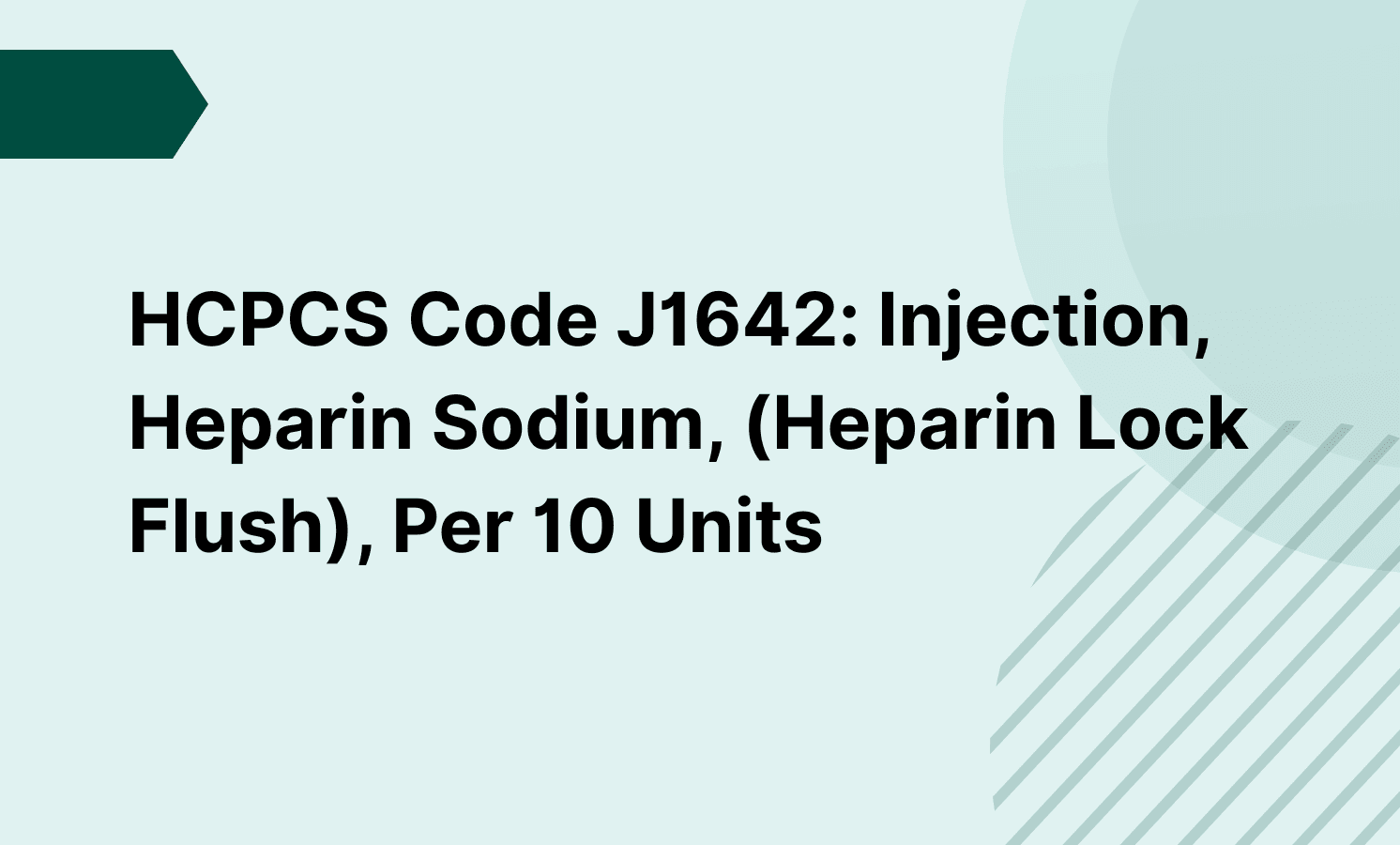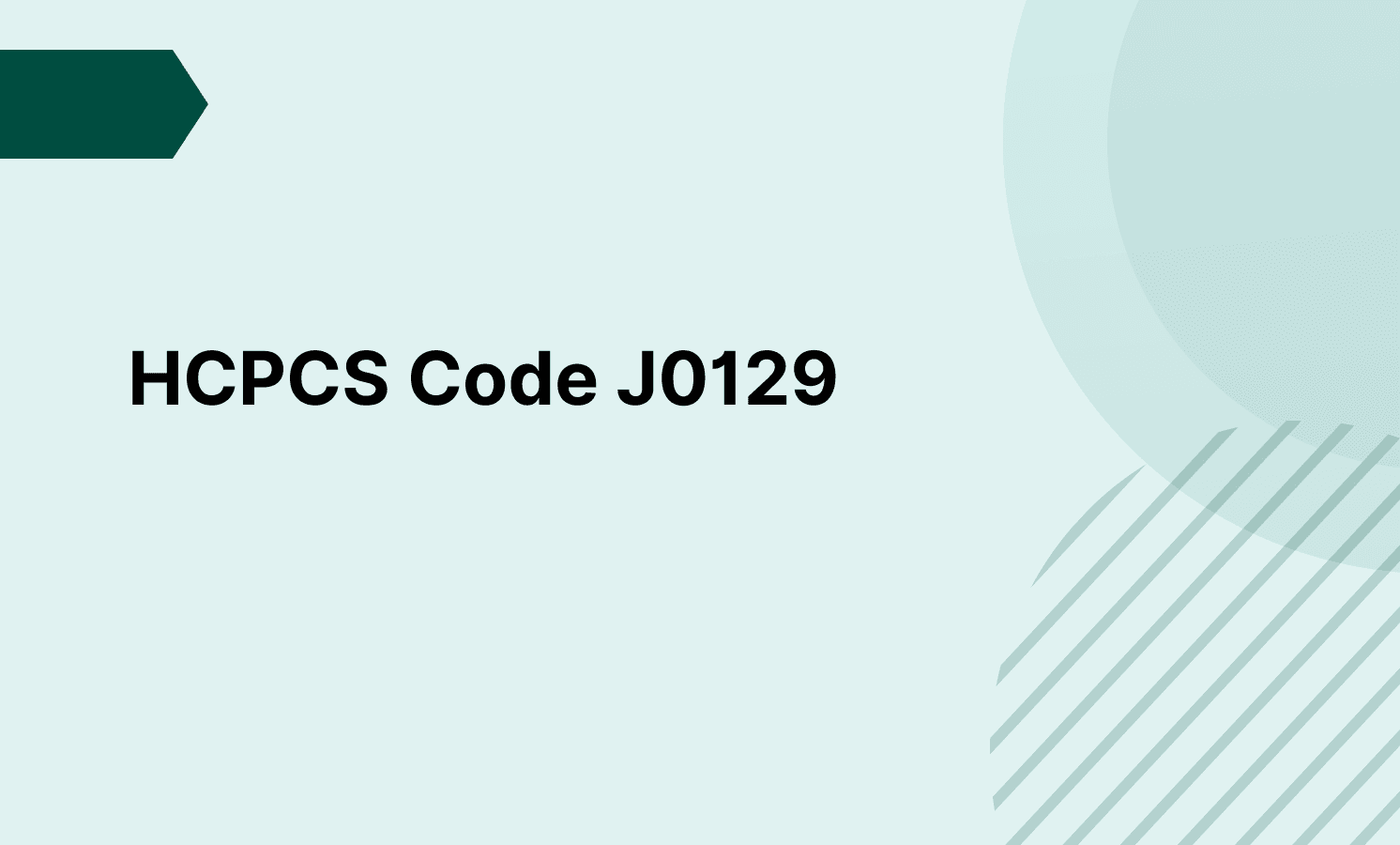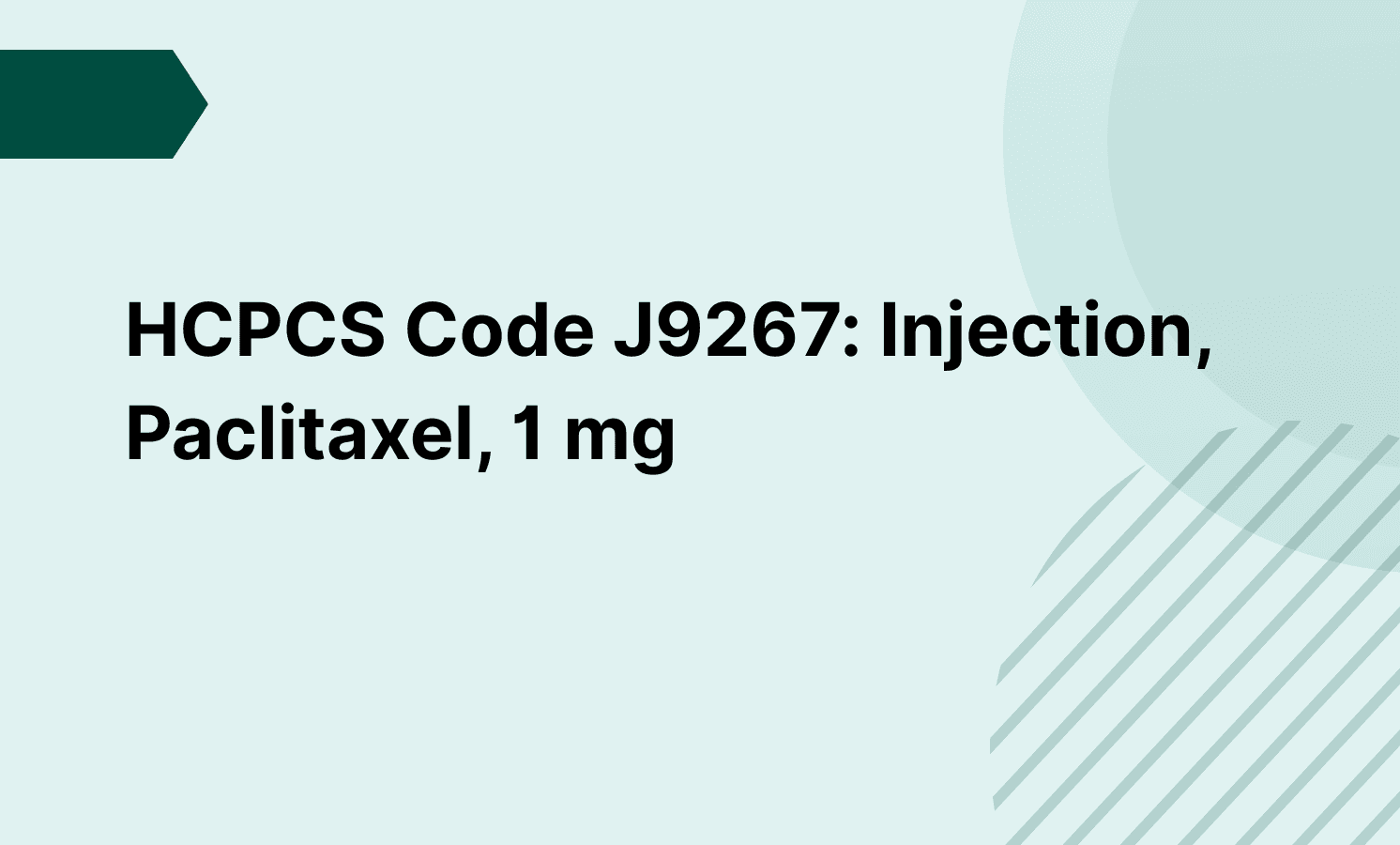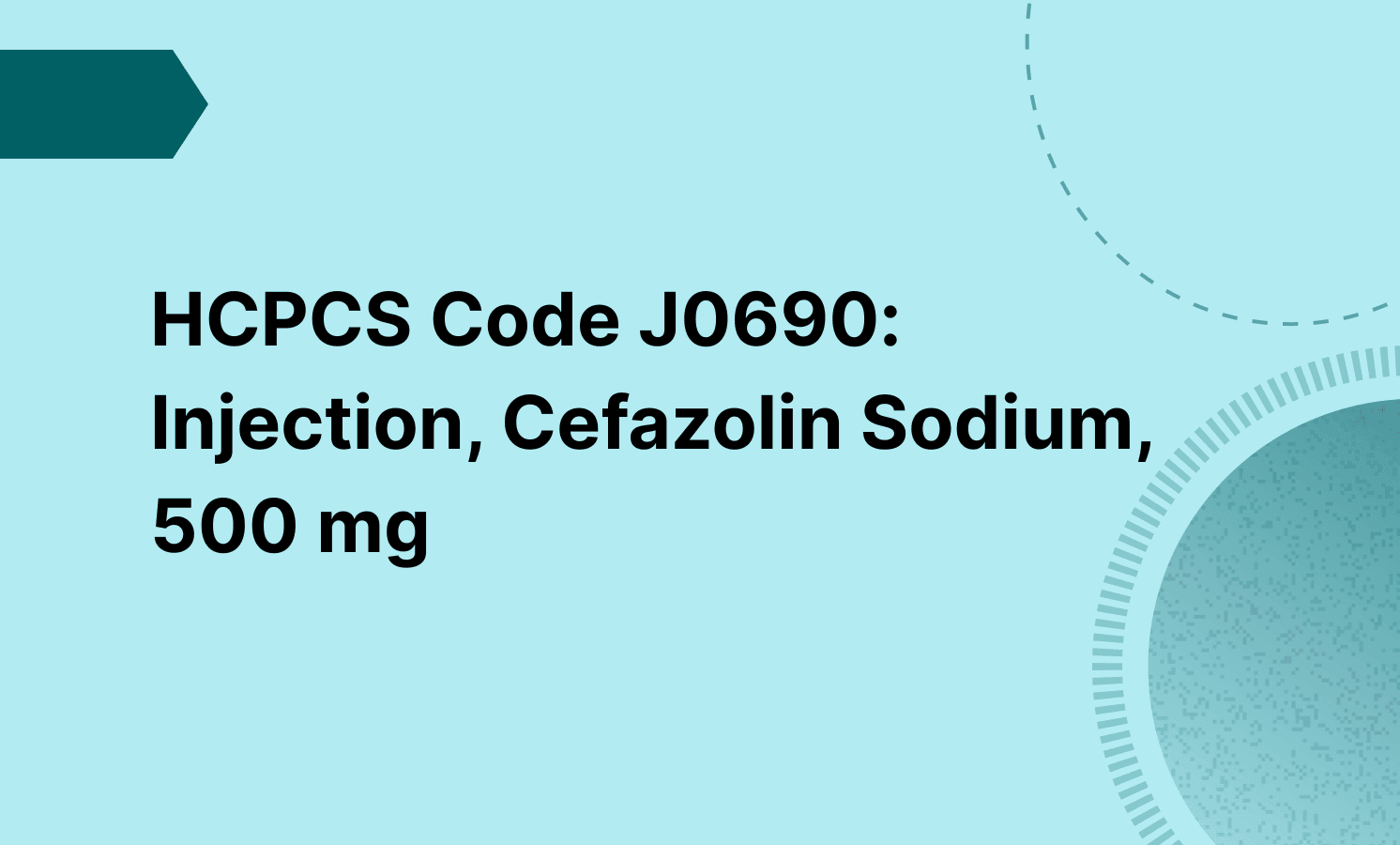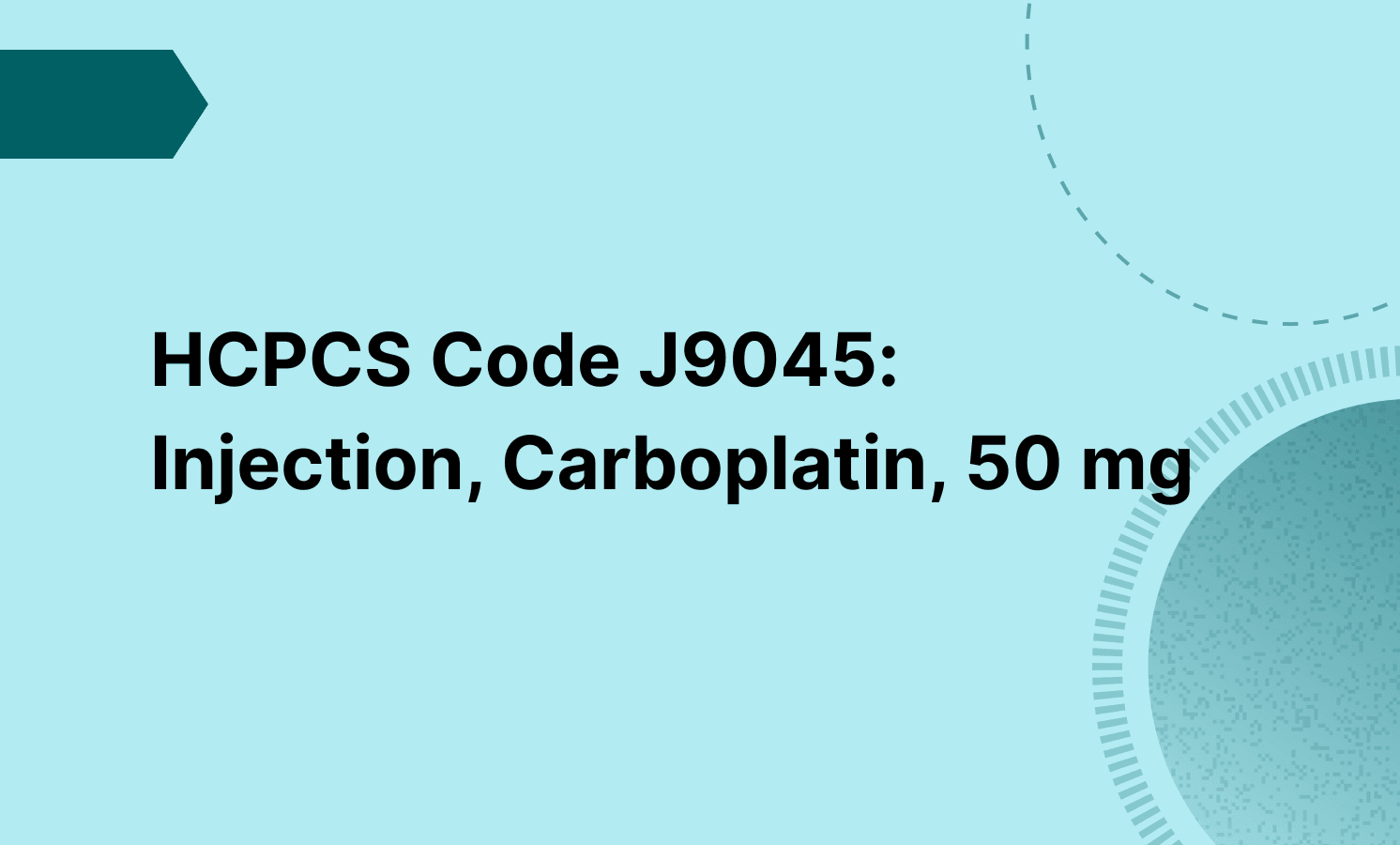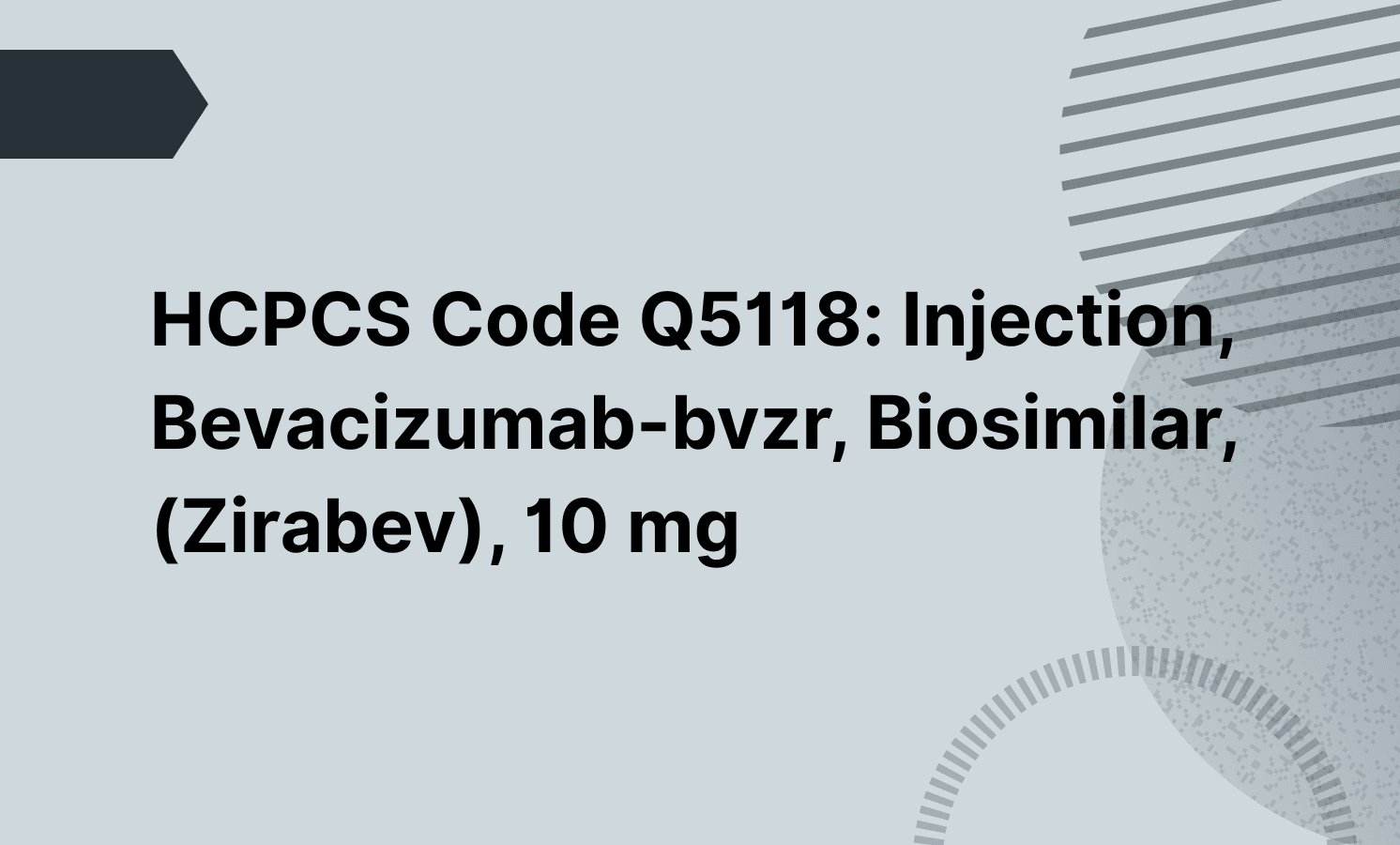An emergency for CPT code 99140 involves an immediate threat to life or significant bodily function, requiring urgent intervention. Documentation must explicitly reflect this emergency condition.
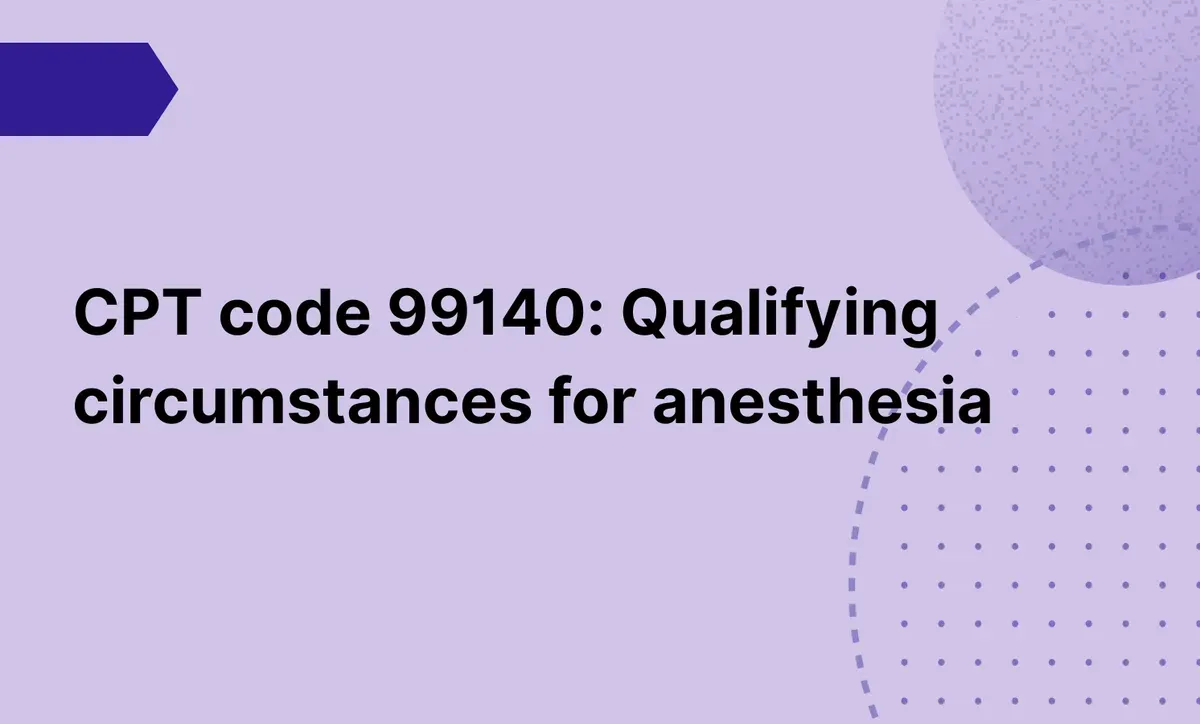
CPT code 99140: Qualifying circumstances for anesthesia
Learn about CPT code 99140 for anesthesia complicated by emergency conditions. Learn clear insights and practical guidance on billing and documentation here.
Frequently asked questions
No. CPT 99140 applies specifically to emergencies requiring immediate anesthesia. Urgent but previously scheduled surgeries do not typically qualify unless a genuine emergent complication arises at the time of anesthesia.
CPT codes 00100-01999 represent primary anesthesia procedures, while codes 99100-99140 are qualifying circumstances add-on codes. These add-on codes indicate special conditions that significantly complicate anesthesia administration, such as extreme age, controlled hypotension, or emergency situations.
EHR and practice management software
Get started for free
*No credit card required
Free
$0/usd
Unlimited clients
Telehealth
1GB of storage
Client portal text
Automated billing and online payments

